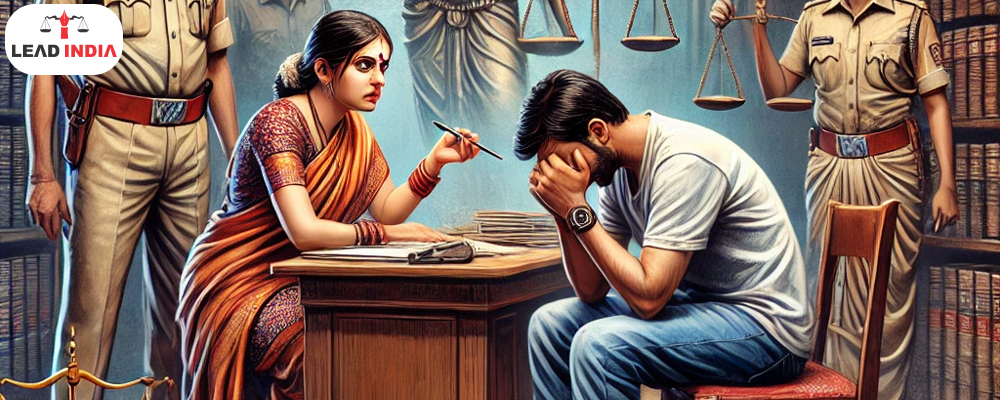Police harassment refers to activities by law enforcement that violate people’s rights and dignity. Physical abuse occurs when officers use excessive force for no apparent reason, while verbal harassment occurs when officers say harsh things or threaten someone. Discrimination, such as attacking someone because of their color, exacerbates the condition. When police conduct illegal searches or arrests without proper justification, they deprive people of their liberty without cause. Police may harass a person for asserting their rights or participating in a peaceful protest. Sexual misbehavior by cops, such as unwanted remarks or advances, is also a concern. Recognizing and combating police harassment is critical to ensuring fair and courteous treatment of citizens by law enforcement.
When police assistance in marriage issues turns into harassment, the victim feels helpless. Rather than obtaining assistance, victims may confront intimidation, compulsion, or false allegations from law police. In many cases, police harassment is gender-based. Women frequently confront greater challenges than men, not only in the legal realm but also in societal pressures that exacerbate their misery. This combination provides a special vulnerability for women involved in marriage disputes.
Need A Legal Advice
The internet is not a lawyer and neither are you. Talk to a real lawyer about your legal issue

Legal Options available in cases of Victims of Police Harassment in Matrimonial Disputes
- Complaints can be made to the Police Complaints Authority using internal channels: Victims can submit a complaint to the Police Complaints Authority. This impartial body investigates complaints against police officers. It also aims to ensure responsibility, and making a complaint here is a vital step in the justice process.
- Filing FIRs and Complaints under Relevant Sections of the BNS and BNSS: Victims should file FIRs or complaints under various provisions of the Indian Penal Code or Criminal Procedure Code. In such circumstances, the sections on wrongful imprisonment, harassment, and intimidation might be very useful.
- Documenting Harassment: Evidence Gathering and Preservation. Incidents require adequate documentation. Events are meticulously recorded and may include the following:
- Dates and hours at which occurrences happened.
- Descriptions of activities and interactions.
- Witness stories and testimonials.
- Any physical proof, such as recordings or images.
- Obtaining Protection Orders under the Protection of Women from Domestic Violence Act: The PWDVA allows victims to file protection orders against abusers, such as police officers. Such orders prohibit further harassment and provide a legal safety net.
- Compensation for Harm: Civil Actions for Damage. In a police misconduct lawsuit, they might seek legal damages to compensate for their emotional and psychological pain.
- Use Legal Aid Services for Financial Support: Legal aid services may help persons who cannot afford legal representation. Several NGOs and legal clinics provide specific assistance to victims of police harassment.
- Complaints with the NHRC: The NHRC handles complaints about human rights abuses. Among them is police misconduct. This commission can thus provide a place for victims to express their concerns and seek reparation.
- Writ Petitions at High Court: Victims can file writ petitions in the High Courts to challenge police improper activities. This legal process ensures that the conduct is judicially evaluated and that protective measures or restitution are offered.
- The importance of media and public pressure in revealing police misbehavior: Media coverage can influence police accountability. Publicizing occurrences can put pressure on investigators and generate compassion for victims. Publicizing can cause a shift in police enforcement practices.
- Complaint to Police complaint authority: The State Police Complaints Authority (PCA) accepts complaints about serious police misconduct or comparable incidents. The list includes incidents such as death in police custody, severe injuries while in police custody, allegations of rape while in police custody, extortion by a police officer, acquisition of land or property in violation of the law by a police officer, and any instance involving significant abuse of authority.
Victims of police harassment have multiple options. Understanding the process, from internal complaints to court litigation, is critical for enabling. Recording cases is critical for strengthening them.
There are various choices available to victims of police harassment. Understanding these mechanisms is critical for empowerment, from filing internal grievances to pursuing justice in court. Documenting incidents is critical for bolstering cases. Continued agitation for police reform is required. Better monitoring and checking can lead to a safer society for everyone. Improvement in the issue of police harassment necessitates continual conversation. Action to reform the law will better protect victims and ensure justice for individuals involved in divorce conflicts. Steps towards transformation benefit both the victim and the justice system as a whole.
Consult Lead India for any legal concerns. We also provide free legal advice, Along with many other services. Professional lawyers can be consulted there. Ask all your legal questions freely. We provide you with other legal services. Lead India ensures that all personal information and your documents will remain confidential. Through the web dashboard, we give you the option to view your cases online. You can simply view your case status and payment status, among other things.





 Talk to a Lawyer
Talk to a Lawyer